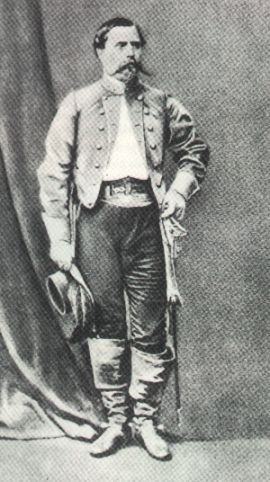
Johann Heros von Borcke was a lieutenant in the 2nd Brandenburg Regiment of Dragoons of the Prussian Army when news arrived of the beginning of the American Civil War.
He managed to get released from his unit, and crossed the Atlantic to the island of Bermuda. From there he managed to get onto a Rebel Blockade Runner and sailed into Charleston Harbor in 1862.
Von Borcke brought with him a massive Solingen straight sword, which would become famous during his military career. Standing 6′ 4″tall and weighing in at more than 240 pounds, he was a conspicuous sight to see on the battlefield, wielding his extremely large sword. He became known as the “giant in gray.”
Von Borcke became a Confederate Captain and a close confidant and aide to Maj. Gen. J.E.B. Stuart who praised him for his bravery and skill. Stuart wrote,
“Capt. Heros von Borcke, a Prussian cavalry officer, who lately ran the blockade, assigned me by the honorable Secretary of War, joined in the charge of the First Squadron in gallant style, and subsequently, by his energy, skill, and activity, won the praise and admiration of all”.
He rode with Stuart as his Chief of Staff and adjutant general during the Northern Virginia Campaign and the Maryland Campaign, further adding to his reputation for bravery in the face of the enemy.
During the Battle of Middleburg, early in the 1863 Gettysburg Campaign, von Borcke took a bullet to his neck and could not fight for the rest of the of the year. But he did recover enough to return to staff duties in the following spring. He was present at the Battle of Yellow Tavern where Maj. Gen. J.E.B. Stuart was lost.
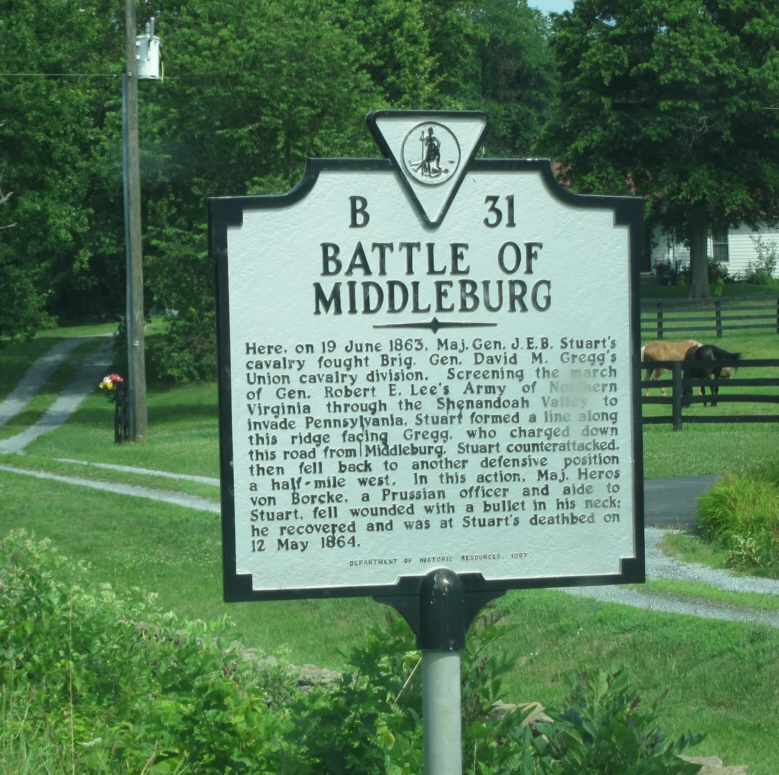
![]() Von Borcke was voted the official thanks of the Confederate Congress. President Jefferson Davis even sent him on a diplomatic mission to England.
Von Borcke was voted the official thanks of the Confederate Congress. President Jefferson Davis even sent him on a diplomatic mission to England.
After the war he returned to Germany, but never forgot his Southern friends, even returning to visit them. He named one of his daughters Virginia. Johann inherited the family castle, where it was his “delight to fly the Confederate flag from its battlements”.
His headstone over his grave in Giesenbrügge was destroyed by the Soviet army during World War II. The Sons of Confederate Veterans purchased a new headstone for his grave. It was reinstalled in 2008.

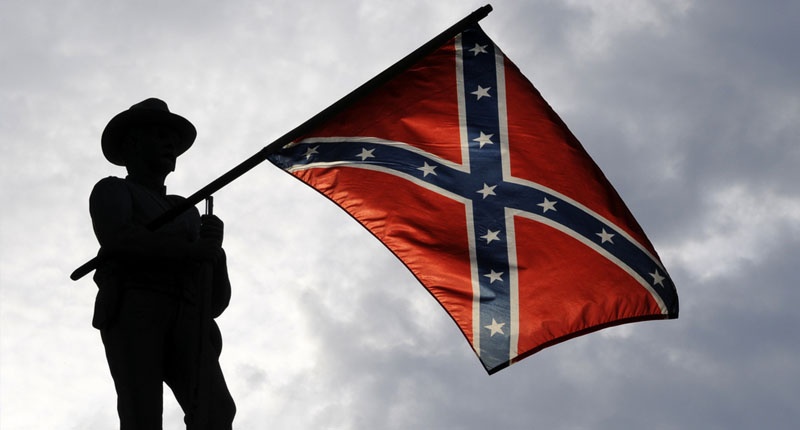
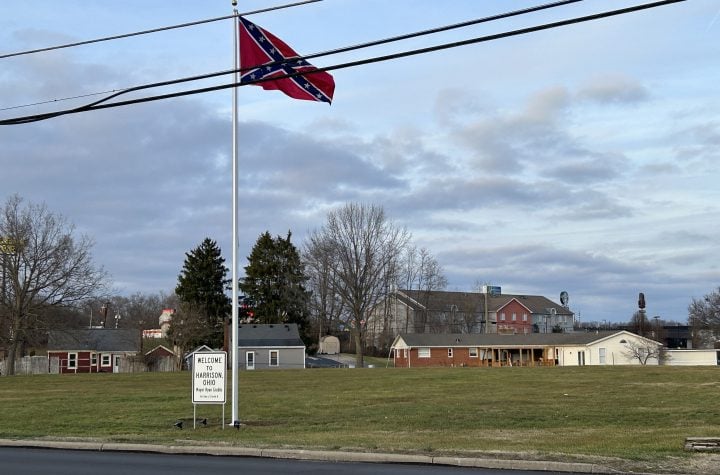

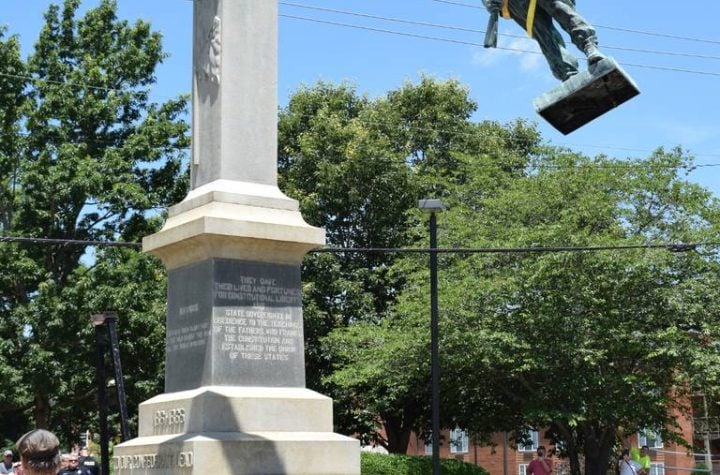
More Stories
Sad Woke Charlottesville liberals Melt down infamous statue of Robert E Lee
NC Appeals Court rules for Town of Louisburg in removal of Confederate monument
The Confederate Flag History: Everything You Should Know